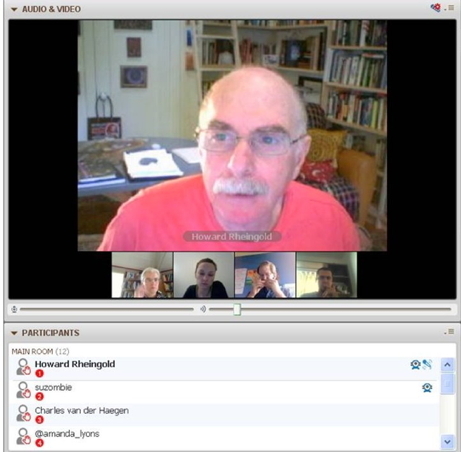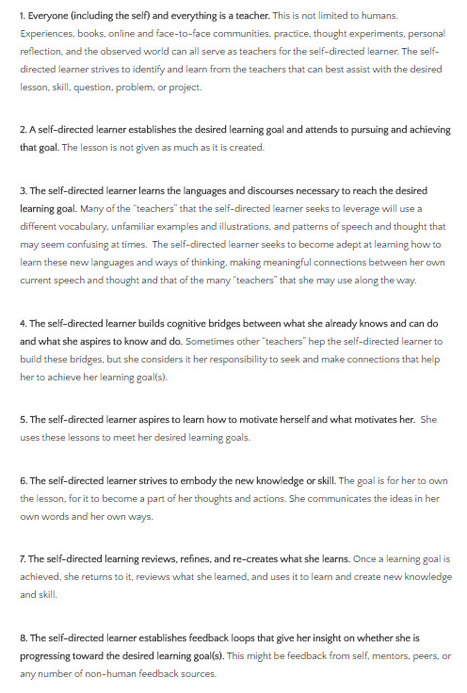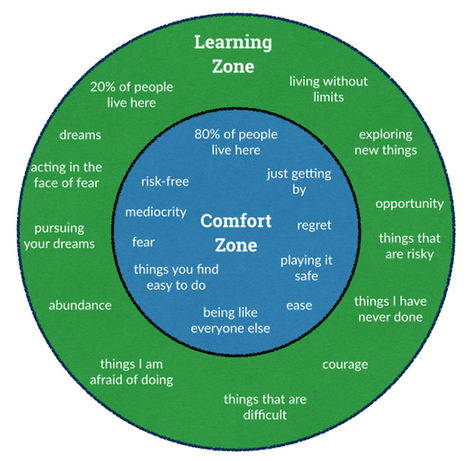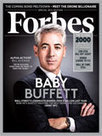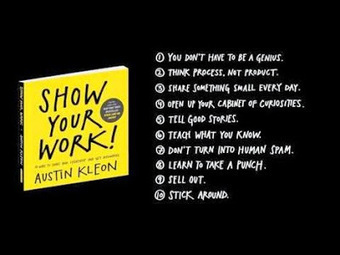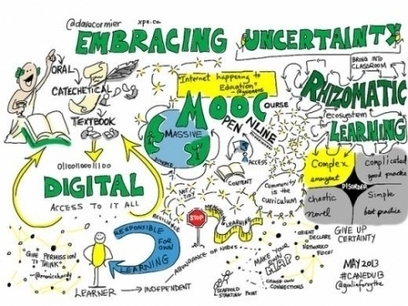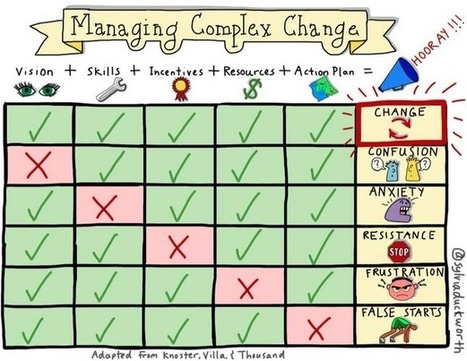Get Started for FREE
Sign up with Facebook Sign up with X
I don't have a Facebook or a X account
 Your new post is loading... Your new post is loading...

Wyatt Fratnz's curator insight,
May 26, 2015 6:43 PM
This article give us a great look at "company culture", the overall personality of the company, and why it is significant. Basically, it shows how culture conflicts with different resources and traits significant to the company. Some of these traits are essential to all companies and is broken down to the company's ethics.
This is a perfect example of where you can find acculturation, assimilation, and multiculturalism (especially assimilation) applied to the real world, where we can find a large diversity of examples of how this takes place in major companies and organizations. 
Samantha de Reuck's curator insight,
June 4, 2015 9:08 AM
If culture correlates with:
How do you ensure an effective, encompassing strategy that entrenches your culture?

Gust MEES's curator insight,
May 18, 2015 5:40 PM
Dr. Bernard Bull is Assistant Vice President of Academics for Continuing and Distance Education & Associate Professor of Education at Concordia University Wisconsin. In 1888, John Milton Gregory published The Seven Laws of Teaching, providing instruction on what contributes to being an effective teacher. While this list is over a hundred years old, most readers today will resonate with this list of laws. This is one of a dozen or so books that I try to read each year. It is a short read that one can usually finish in a few hours. As I picked up the book to read again today, I started to think about these laws in terms of self-directed learning, rewriting the laws from a self-directed learning perspective (which, by the way, fits nicely with law #7). Below is the original list of “elements” from which Gregory devised his seven laws. Using these as a starting point, I revised them to create the seven elements of a self-directed learner, adding one additional item that did not seem to have adequate emphasis in Gregory’s original list (although it is embedded within several of them). Learn more: - https://gustmees.wordpress.com/2014/07/10/education-collaboration-and-coaching-the-future/ - http://www.scoop.it/t/21st-century-learning-and-teaching/?tag=Coaching
Alfio Gangemi's curator insight,
May 24, 2015 8:13 PM
This could be helpful for an educator as a checklist when developing a lesson plan to ensure that the way the lesson is set out and implemented builds on a students ability to a become self directed learner.

Marlena Gross-Taylor's curator insight,
May 17, 2015 10:24 AM
To be a fearless, 360 leader you have to step outside of your comfort zone. The experience provides the opportunity for growth! #leadupchat #edchat #mschat 
Dr. Deborah Brennan's curator insight,
May 17, 2015 11:54 AM
Vygotsky talked of the Zone of Proximal Development, and this article is in line with that foundational philosophy about learning. When we think about improving schools, both of Vygotsky and this article apply. We need leaders, teachers, and students operating outside their comfort zone, taking risks, setting goals, and learning. There is a danger in struggling schools to push too hard and move buying the productive zone for learning. This article speaks well to that aspect of learning. With good intentions, leaders at building, district, and state level often push a school and omits staff beyond the productive learning zone into the danger zone. This is done through programs, initiatives, and monitoring often with the goal of providing support, but with the result of overwhelming the school and staff.

Dr. Deborah Brennan's curator insight,
May 23, 2015 6:25 PM
Great tool for teachers. We must make students aware of their thinking processes so they can use them strategically and develop them fully
PaolaRicaurte's curator insight,
April 2, 2016 8:34 AM
Everybody speaks about critical thinking, but what does it mean exactly?

Pamela Perry King's curator insight,
June 2, 2015 3:41 PM
Curation is a great way to build your Personal Learning Network. Would like to get a little bit better with it. 
Rosemary Tyrrell, Ed.D.'s curator insight,
June 4, 2015 8:38 PM
Curation is also a great form of DIY professional development. 
Consultants-E's curator insight,
June 27, 2015 5:03 PM
If you don't curate content already, you may find this interesting. |

Gust MEES's curator insight,
June 3, 2015 6:07 PM
This infographic will show you the wise habits of successful people. They are the reason why they are set apart from the rest. Learn more: - http://www.scoop.it/t/21st-century-learning-and-teaching/?tag=Success 
Ian Berry's curator insight,
June 5, 2015 7:05 PM
Reminded me of the wisdom of Earl Nightingale "The only difference between successful people and unsuccessful people is that successful people have successful habits."

Joran Le Cren's curator insight,
May 20, 2015 6:54 AM
Why "Social Learning" should stay linked to MOOCs ?
Indeed, social activities should be learnt in a social way, not in teacher-student way in a classroom or in a MOOC.
I'm not sure though why the author talks about modern (not social) versus original (social) MOOCs. Both exist at the same time and the social aspect mostly depends on the skills taught.

Kathleen McClaskey's curator insight,
April 29, 2015 12:28 PM
Changing or transforming any system especially in education is not an easy thing to do. If you are part of a system that most of us grew up in and are used to, it doesn't take much to keep your school or district from moving to a successful Personalized Learning System. The change process is so complex that even if you agree and are working on transforming the system, there may be one piece of the puzzle that is missing that keeps change from happening. This visual from Sylvia Duckworth makes it easy for us to interpret and evaluate the change process that is referred to at the bottom of this post. These images visualize the reactions people have during the change process. If the leadership team and others working on transforming their system, they can monitor and consider what needs to be done to get a derailed changed strategy back on track. |




